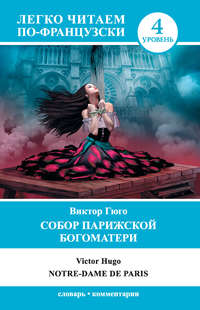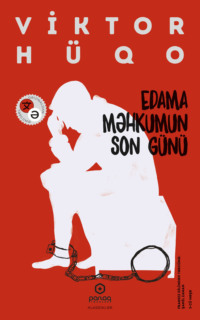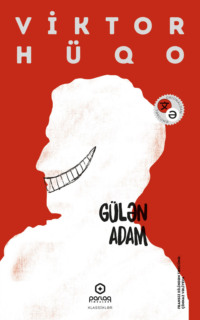 полная версия
полная версияLes Misérables, v. 4
"What a fine sorgue [night] for a bolt!" said Brujon.
An abyss of six feet in width and eighty feet deep separated them from the surrounding wall, and at the bottom of this abyss they could see a sentry's musket gleaming in the darkness. They fastened to the ends of the chimney-bars which they had just broken the rope which Brujon had woven in the cell, threw the other end over the outer wall, crossed the abyss at a bound, clung to the coping of the wall, bestraddled it, glided in turn along the rope to a little roof which joins the bath-house, pulled their rope to them, jumped into the yard of the bath-house, pushed open the porter's casement, close to which hung his cord, pulled the cord, opened the gate, and found themselves in the street. Not three quarters of an hour had elapsed since they were standing on the bed, nail in hand, and with their plan in their heads; a few minutes after, they had rejoined Babet and Montparnasse, who were prowling in the neighborhood. On drawing the cord to them they broke it, and a piece had remained fastened to the chimney on the roof, but they had met with no other accident beyond almost entirely skinning their fingers. On this night Thénardier was warned, though it was impossible to discover how, and did not go to sleep. At about one in the morning, when the night was very black, he saw two shadows passing, in the rain and gusts, the window opposite his cage. One stopped just long enough to give a look; it was Brujon. Thénardier saw him, and understood, – that was enough for him. Thénardier, reported to be a burglar, and detained on the charge of attempting to obtain money at night by violence, was kept under constant watch; and a sentry, relieved every two hours, walked in front of his cage with a loaded musket. Bel Air was lighted by a sky-light, and the prisoner had on his feet a pair of fetters weighing fifty pounds. Every day at four in the afternoon, a turnkey, escorted by two mastiffs, – such things still happened at that day, – entered his cage, placed near his bed a black loaf of two pounds' weight, a water-jug, and a bowl of very weak broth in which a few beans floated, inspected his fetters, and tapped the bars. This man with his dogs returned twice during the night.
Thénardier had obtained permission to keep a sort of iron pin which he used to nail his bread to the wall, in order, as he said, "to preserve it from the rats." As Thénardier was under a constant watch, this pin did not seem dangerous; still it was remembered at a later day that a turnkey said, "It would have been better only to leave him a wooden skewer." At two in the morning the sentry, who was an old soldier, was changed, and a recruit substituted for him. A few minutes after, the man with the dogs paid his visit, and went away without having noticed anything, except the youthful and peasant look of the "tourlourou." Two hours after, when they came to relieve this conscript, they found him asleep, and lying like a log by the side of Thénardier's cage. As for the prisoner, he was no longer there; his severed fetters lay on the ground, and there was a hole in the ceiling of his cage, and another above it in the roof. A plank of his bed had been torn out and carried off; for it could not be found. In the cell was also found the half empty bottle, containing the rest of the drugged wine with which the young soldier had been sent to sleep. The soldier's bayonet had disappeared. At the moment when all this was discovered, Thénardier was supposed to be out of reach; the truth was, that he was no longer in the Bâtiment Neuf, but was still in great danger. Thénardier, on reaching the roof of the Bâtiment Neuf, found the remainder of Brujon's rope hanging from the chimney-bars; but as the broken cord was much too short, he was unable to cross the outer wall as Brujon and Gueulemer had done.
When you turn out of the Rue des Ballets into the Rue du Roi de Sicile, you notice almost directly on your right a dirty hollow. In the last century a house stood here, of which only the back wall exists, a perfect ruin of a wall which rises to the height of a third story between the adjacent buildings. This ruin can be recognized by two large square windows, still visible. The centre one, the one nearest the right-hand gable, is barred by a worm-eaten joist adjusted in the supporting rafter; and through these windows could be seen, formerly, a lofty lugubrious wall, which was a portion of the outer wall of La Force. The gap which the demolished house has left in the street is half filled up with a palisade of rotten planks, supported by five stone pillars, and inside is a small hut built against the still standing ruin. The boarding has a door in it which a few years ago was merely closed with a latch. It was the top of this ruin which Thénardier had attained a little after three in the morning. How did he get there? This was never explained or understood. The lightning-flashes must at once have impeded and helped him. Did he employ the ladders and scaffolding of the slaters to pass from roof to roof, over the buildings of the Charlemagne yard, those of the St. Louis yard, the outer, and thence reach the ruined wall in the Rue du Roi de Sicile? But there were in this passage breaks of continuity, which seemed to render it impossible. Had he laid the plank from his bed as a bridge from the roof of Bel Air to the outer wall, and crawled on his stomach along the coping, all round the prison till he reached the ruin? But the outer wall of La Force was very irregular; it rose and sank; it was low at the fire-brigade station, and rose again at the bath-house; it was intersected by buildings, and had everywhere drops and right angles; and then, too, the sentries must have seen the fugitive's dark outline, – and thus the road taken by Thénardier remains almost inexplicable. Had he, illumined by that frightful thirst for liberty which changes precipices into ditches, iron bars into reeds, a cripple into an athlete, a gouty patient into a bird, stupidity into instinct, instinct into intellect, and intellect into genius, invented and improvised a third mode of escape? No one ever knew.
It is not always possible to explain the marvels of an escape; the man who breaks prison is, we repeat, inspired. There is something of a star, of the lightning, in the mysterious light of the flight. The effort made for deliverance is no less surprising than the soaring toward the sublime, and people say of an escaped robber, "How did he manage to scale that roof?" in the same way as they say of Corneille, "Where did he find his qu'il mourût?" However this may be, Thénardier, dripping with perspiration, wet through with rain, with his clothes in rags, his hands skinned, his elbows bleeding, and his knees lacerated, reached the ruin-wall, lay down full length on it, and then his strength failed him. A perpendicular wall as high as a three-storied house separated him from the street, and the rope he had was too short. He waited there, pale, exhausted, despairing, though just now so hopeful, still covered by night, but saying to himself that day would soon come; horrified at the thought that he should shortly hear it strike four from the neighboring clock of St. Paul, the hour when the sentry would be changed, and be found asleep under the hole in the roof. He regarded with stupor the wet black pavement, in the light of the lamps, and at such a terrible depth, – that desired and terrific pavement which was death and which was liberty. He asked himself whether his three accomplices had succeeded in escaping, whether they were waiting for him, and if they would come to his help? He listened: excepting a patrol, no one had passed through the street since he had been lying there. Nearly all the market carts from Montreuil, Charonne, Vincennes, and Bercy came into town by the Rue St. Antoine.
Four o'clock struck, and Thénardier trembled. A few minutes after, the startled and confused noise which follows the discovery of an escape broke out in the prison. The sound of doors being opened and shut, the creaking of gates on their hinges, the tumult at the guard-room, and the clang of musket butts on the pavement of the yards, reached his ears. Lights flashed past the grated windows of the sleeping wards; a torch ran along the roof of the Bâtiment Neuf, and the firemen were called out. Three caps, which the torch lit up in the rain, came and went along the roofs, and at the same time Thénardier saw, in the direction of the Bastille, a livid gleam mournfully whitening the sky. He was on the top of a wall ten inches wide, lying in the pitiless rain, with a gulf on his right hand and on his left, unable to stir, suffering from the dizziness of a possible fall and the horror of a certain arrest, and his mind, like the clapper of a bell, went from one of these ideas to the other: "Dead if I fall; caught if I remain." In this state of agony he suddenly saw in the still perfectly dark street a man, who glided along the walls and came from the Rue Pavée, stop in the gap over which Thénardier was, as it were, suspended. This man was joined by a second, who walked with similar caution, then by a third, and then by a fourth. When these men were together, one of them raised the latch of the paling gate, and all four entered the enclosure where the hut is, and stood exactly under Thénardier. These men had evidently selected this place to consult in, in order not to be seen by passers-by, or the sentry guarding the wicket of La Force a few paces distant. We must say, too, that the rain kept this sentry confined to his box. Thénardier, unable to distinguish their faces, listened to their remarks with the desperate attention of a wretch who feels himself lost. He felt something like hope pass before his eyes, when he heard these men talking slang. The first said, in a low voice, but distinctly, something which we had better translate: —
"Let us be off. What are we doing here?"
The second replied, —
"It is raining hard enough to put out the fire of hell. And then the police will pass soon; besides, there is a sentry on. We shall get ourselves arrested here."
Two words employed, icigo and icicaille, which both mean "here," and which belong, the first to the flash language of the barrières, and the second to that of the Temple, were rays of light for Thénardier. By the icigo he recognized Brujon, who was a prowler at the barrières, and by icicaille Babet, who, among all his other trades, had been a second-hand clothes-dealer at the Temple. The antique slang of the great century is only talked now at the Temple, and Babet was the only man who spoke it in its purity. Had it not been for the icicaille, Thénardier could not have recognized him, for he had completely altered his voice. In the mean while the third man had interfered.
"There is nothing to hurry us, so let us wait a little. What is there to tell us that he does not want us?"
Through this, which was only French, Thénardier recognized Montparnasse, whose pride it was to understand all the slang dialects and not speak one of them. As for the fourth man, he held his tongue, but his wide shoulders denounced him, and Thénardier did not hesitate, – it was Gueulemer. Brujon replied almost impetuously, but still in a low voice: —
"What is that you are saying? The innkeeper has not been able to bolt. He doesn't understand the dodge. A man must be a clever hand to tear up his shirt and cut his sheets in slips to make a rope; to make holes in doors; manufacture false papers; make false keys; file his fetters through; hang his rope out of the window; hide and disguise himself. The old man cannot have done this, for he does not know how to work."
Babet added, still in the correct classic slang which Poiailler and Cartouche spoke, and which is to the new, bold, and colored slang which Brujon employed what the language of Racine is to that of André Chénier, —
"Your friend the innkeeper must have been taken in the attempt. One ought to be wide awake. He is a flat. He must have been bamboozled by a detective, perhaps even by a prison spy, who played the simpleton. Listen, Montparnasse; do you hear those shouts in the prison? You saw all those candles; he is caught again, and will get off with twenty years. I am not frightened. I am no coward, as is well known; but the only thing to be done now is to bolt, or we shall be trapped. Do not feel offended; but come with us, and let us drink a bottle of old wine together."
"Friends must not be left in a difficulty," Montparnasse growled.
"I tell you he is caught again," Brujon resumed, "and at this moment the landlord is not worth a farthing. We can do nothing for him, so let us be off. I feel at every moment as if a policeman were holding me in his hand."
Montparnasse resisted but feebly; the truth is, that these four men, with the fidelity which bandits have of never deserting each other, had prowled the whole night around La Force, in spite of the peril they incurred, in the hope of seeing Thénardier appear on the top of some wall. But the night, which became really too favorable, for the rain rendered all the streets deserted, the cold which attacked them, their dripping clothes, their worn-out shoes, the alarming noises which had broken out in the prison, the hours which had elapsed, the patrols they had met, the hope which departed, and the fear that returned, – all this urged them to retreat. Montparnasse himself, who was perhaps Thénardier's son-in-law in a certain sense, yielded, and in a moment they would be gone. Thénardier gasped on his wall as the shipwrecked crew of the "Méduse" did on their raft, when they watched the ship which they had sighted fade away on the horizon. He did not dare call to them, for a cry overheard might ruin everything; but he had an idea, a last idea, an inspiration, – he took from his pocket the end of Brujon's rope which he had detached from the chimney of the Bâtiment Neuf, and threw it at their feet.
"A cord!" said Babet
"My cord!" said Brujon.
"The landlord is there," said Montparnasse. They raised their eyes and Thénardier thrust out his head a little.
"Quiet," said Montparnasse. "Have you the other end of the rope, Brujon?"
"Yes."
"Fasten the two ends together. We will throw the rope to him; he will attach it to the wall, and it will be long enough for him to come down."
Thénardier ventured to raise his voice, —
"I am wet through."
"We'll warm you."
"I cannot stir."
"You will slip down, and we will catch you."
"My hands are swollen."
"Only just fasten the rope to the wall."
"I can't."
"One of us must go up," said Montparnasse.
"Three stories!" Brujon ejaculated.
An old plaster conduit pipe, which had served for a stove formerly, lit in the hut, ran along the wall almost to the spot where Thénardier was lying. This pipe, which at that day was full of cracks and holes, has since fallen down, but its traces may be seen. It was very narrow.
"It would be possible to mount by that," said Montparnasse.
"By that pipe?" Babet exclaimed. "A man? Oh no, a boy is required."
"Yes, a boy," Brujon said in affirmative.
"Where can we find one?" Gueulemer said.
"Wait a minute," Montparnasse said; "I have it."
He gently opened the door of the paling, assured himself that there was no passer-by in the street, went out, shut the gate cautiously after him, and ran off in the direction of the Bastille. Seven or eight minutes elapsed, eight thousand centuries for Thénardier; Babet, Brujon, and Gueulemer did not open their lips; the door opened again, and Montparnasse came in, panting and leading Gavroche. The rain continued to make the street completely deserted. Little Gavroche stepped into the enclosure and looked calmly at the faces of the bandits. The rain was dripping from his hair, and Gueulemer said to him, —
"Brat, are you a man?"
Gavroche shrugged his shoulders, and replied, —
"A child like me is a man, and men like you are children."
"What a well-hung tongue the brat has!" Babet exclaimed.
"The boy of Paris is not made of wet paste," Brujon added.
"What do you want of me?" said Gavroche.
Montparnasse answered, —
"Climb up that pipe."
"With this rope," Babet remarked.
"And fasten it," Brujon continued.
"At the top of the wall," Babet added.
"To the cross-bar of the window," Brujon said, finally.
"What next?" asked Gavroche.
"Here it is," said Gueulemer.
The gamin examined the rope, the chimney, the wall, and the window, and gave that indescribable and disdainful smack if the lips which signifies, "What is it?"
"There is a man up there whom you will save," Montparnasse continued.
"Are you willing?" Brujon asked.
"Ass!" the lad replied, as if the question seemed to him extraordinary, and took off his shoes.
Gueulemer seized Gavroche by one arm, placed him on the roof of the pent-houses, where mouldering planks bent under the boy's weight, and handed him the rope which Brujon had joined again during the absence of Montparnasse. The gamin turned to the chimney, which it was an easy task to enter by a large crevice close to the roof. At the moment when he was going to ascend, Thénardier, who saw safety and life approaching, leaned over the edge of the wall. The first gleam of day whitened his dark forehead, his livid cheek-bones, his sharp savage nose, and his bristling gray beard, and Gavroche recognized him.
"Hilloh!" he said, "it's my father. Well, that won't stop me."
And taking the rope between his teeth, he resolutely commenced his ascent. He reached the top of the wall, straddled across it like a horse, and securely fastened the rope to the topmost cross-bar of the window. A moment after, Thénardier was in the street. So soon as he touched the pavement, so soon as he felt himself out of danger, he was no longer wearied, chilled, or trembling. The terrible things he had passed through were dissipated like smoke, and all his strange and ferocious intellect was re-aroused, and found itself erect and free, ready to march onward. The first remark this man made was, —
"Well, whom are we going to eat?"
It is unnecessary to explain the meaning of this frightfully transparent sentence, which signifies at once killing, assassinating, and robbing. The real meaning of "to eat" is "to devour".
"We must get into hiding," said Brujon. "We will understand each other in three words, and then seperate at once. There was an affair that seemed good in the Rue Plumet, – a deserted street; an isolated house; old rust-eaten railings looking on a garden, and lone women."
"Well, why not try it?" Thénardier asked.
"Your daughter Éponine went to look at the thing," Babet answered.
"And has told Magnon it is 'a biscuit,'" Brujon added; "there's nothing to be done here."
"The girl's no fool," said Thénardier; "still we must see."
"Yes, yes," Brujon remarked; "we must see."
Not one of the men seemed to notice Gavroche, who, during this colloquy, was sitting on one of the posts. He waited some minutes, perhaps in the hope that his father would turn to him, and then put on his shoes again, saying, —
"Is it all over? You men don't want me any more, I suppose, as I've got you out of the scrape? I'm off, for I must go and wake my cubs."
And he went off. The five men left the enclosure in turn. When Gavroche had disappeared round the corner of the Rue des Ballets, Babet took Thénardier on one side.
"Do you notice that kid?" he asked him.
"What kid?"
"The one who climbed up the wall and handed you the rope."
"Not particularly."
"Well, I don't know; but I fancy it's your son."
"Bah!" said Thénardier; "do you think so?"
BOOK VII
SLANG
CHAPTER I
THE ORIGIN OF SLANG
"Pigritia" is a terrible word. It engenders a world, la pègre, for which read, robbery; and a Hades, la pégrenne, for which read, hunger. Hence indolence is a mother, and has a son, robbery, and a daughter, hunger. Where are we at this moment? In slang. What is slang? It is at once the nation and the idiom; it is robbery in its two species, people and language. Four-and-thirty years ago, when the narrator of this grave and sombre history introduced into the middle of a work written with the same object as this one2 a robber speaking slang, there was amazement and clamor. "Why! what! slang! why, it is frightful; it is the language of the chain-gang, of hulks and prisons, of everything that is the most abominable in society," etc. We could never understand objections of this nature. Since that period two powerful romance-writers, of whom one was a profound observer of humanity, the other an intrepid friend of the people, – Balzac and Eugène Sue, – having made bandits talk in their natural tongue, as the author of "Le dernier Jour dun Condamné" did in 1828, the same objections were raised, and people repeated: "What do writers want with this repulsive patois? Slang is odious, and produces a shudder." Who denies it? Of course it does. When the object is to probe a wound, a gulf, or a society, when did it become a fault to drive the probe too deep? We have always thought that it was sometimes an act of courage and at the very least a simple and useful action, worthy of the sympathetic attention which a duty accepted and carried out deserves. Why should we not explore and study everything, and why stop on the way? Stopping is the function of the probe, and not of the prober.
Certainly it is neither an attractive nor an easy task to seek in the lowest depths of social order, where the earth leaves off and mud begins, to grope in these vague densities, to pursue, seize, and throw quivering on the pavement that abject idiom which drips with filth when thus brought to light, that pustulous vocabulary of which each word seems an unclean ring of a monster of the mud and darkness. Nothing is more mournful than thus to contemplate, by the light of thought, the frightful vermin swarm of slang in its nudity. It seems, in fact, as if you have just drawn from its sewer a sort of horrible beast made for the night, and you fancy you see a frightful, living, and bristling polype, which shivers, moves, is agitated, demands the shadow again, menaces, and looks. One word resembles a claw, another a lustreless and bleeding eye, and some phrases seem to snap like the pincers of a crab. All this lives with the hideous vitality of things which are organized in disorganization. Now, let us ask, when did horror begin to exclude study; or the malady drive away the physician? Can we imagine a naturalist who would refuse to examine a viper, a bat, a scorpion, a scolopendra, or a tarantula, and throw them into the darkness, saying, "Fie, how ugly they are!" The thinker who turned away from slang would resemble a surgeon who turned away from an ulcer or a wart. He would be a philologist hesitating to examine a fact of language, a philosopher hesitating to scrutinize a fact of humanity. For we must tell all those ignorant of the fact, that slang is at once a literary phenomenon and a social result. What is slang, properly so called? It is the language of misery.
Here we may, perhaps, be stopped; the fact may be generalized, which is sometimes a way of alternating it; it may be observed that every trade, every profession, we might also say all the accidents of the social hierarchy, and all the forms of intelligence, have their slang. The merchant who says "Montpellier in demand, Marseille fine quality;" the broker who says, "amount brought forward, premium at end of month;" the gambler who says, "pique, répique, and capot;" the bailiff of the Norman Isles who says, "the holder in fee cannot make any claim on the products of the land during the hereditary seizure of the property of the re-lessor;" the playwright who says, "the piece was goosed;" the actor who says, "I made a hit;" the philosopher who says, "phenomenal triplicity;" the sportsman who says, "a covey of partridges, a leash of woodcocks;" the phrenologist who says, "amativeness, combativeness, secretiveness;" the infantry soldier who says, "my clarionette;" the dragoon who says, "my turkey-cock;" the fencing-master who says, "tierce, carte, disengage;" the printer who says, "hold a chapel;" all – printer, fencing-master, dragoon, infantry man, phrenologist, sportsman, philosopher, actor, playwright, gambler, stock-broker, and merchant – talk slang. The painter who says, "my grinder;" the attorney who says, "my gutter-skipper;" the barber who says, "my clerk;" and the cobbler who says, "my scrub," – all talk slang. Rigorously taken, all the different ways of saying right and left, the sailors larboard and starboard, the scene-shifter's off-side and prompt-side, and the vergers Epistle-side and Gospel-side, are slang. There is the slang of affected girls as there was the slang of the précieuses, and the Hôtel de Rambouillet bordered to some slight extent the Cour des Miracles. There is the slang of duchesses, as is proved by this sentence, written in a note by a very great lady and very pretty woman of the Restoration: "Vous trouverez dans ces potains-là une foultitude de raisons pour que je me libertise."3 Diplomatic ciphers are slang, and the Pontifical Chancery, writing 26 for "Rome," grkztntgzyal for "Envoy," and abfxustgrnogrkzu tu XI. for "the Duke of Modena," talk slang. The mediæval physicians who, in order to refer to carrots, radishes, and turnips, said, opoponach, perfroschinum, reptitalinus, dracatholicum, angelorum, and postmegorum, talk slang. The sugar-refiner who says, "clarified syrup, molasses, bastard, common, burned, loaf-sugar," – this honest manufacturer talks slang. A certain school of critics, who twenty years ago said, "one half of Shakespeare is puns and playing on words," spoke slang. The poet and artist who with profound feeling would call M. de Montmorency a bourgeois, if he were not a connoisseur in verses and statues, talk slang. The classic academician who calls flowers Flora, the fruits Pomona, the sea Neptune, love the flames, beauty charms, a horse a charger, the white or tricolor cockade the rose of Bellona, the three-cornered hat the triangle of Mars, – that classic academician talks slang. Algebra, medicine, and botany have their slang. The language employed on shipboard – that admirable sea-language so complete and picturesque, which Jean Bart, Duquesne, Suffren, and Duperré spoke, which is mingled with the straining of the rigging, the sound of the speaking-trumpets, the clang of boarding-axe, the rolling, the wind, the gusts, and the cannon – is an heroic and brilliant slang, which is to the ferocious slang of robbers what the lion is to the jackal.









